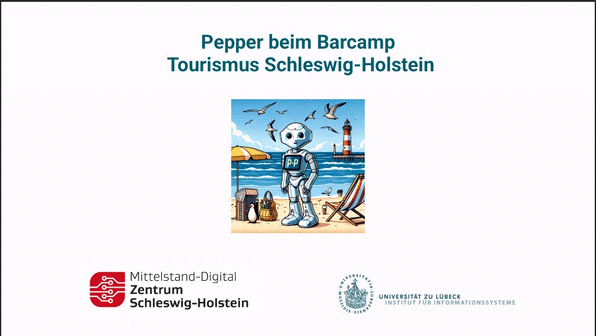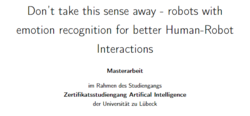Sina Scholz
Curriculum Vitae
- March 1, 2023 - January 31,2025, I have been working as a team member in the Mittelstand-Digital Center Schleswig-Holstein (MDZ) project at UTK under the supervision of Professor Nele Rußwinkel in the Human-Aware AI research group of the university of Lübeck:
- My responsibilities include conducting workshops and interactive lectures on topics such as "Implementing AI in Business," AI-Readiness, Robotics (Social Robots, Service Robots, ..), and integrating ChatGPT into everyday work tasks.
- I lead conversations with companies about AI and support by implementing the latest scientific findings in the field of AI within their businesses
- Additionally, I develop for the Mittelstand-Digital Zentrum project an online offering, particularly focusing on the creation of a "AI Detective" with the goal to detect AI-generated images
- For further information, please do not hesitate to contact me or visit my LinkedIn profile
Interests
- Human-Aware AI
- Autonomous Agents
- Robotics
- Successful Human-Robot Interactions (HRI) and Human Machine Interfaces (HMI)
- Emotion recognition and Situation-awareness
- Generative AI
- EU AI Act / AI Governance
- AI in Healthcare and Sea Rescue Service (SAR - Search and Rescue)
Activities / current projects
Publications
2024
Alexander
Werk,
Sina
Scholz,
Thomas
Sievers, and
Nele
Russwinkel,
How to Provide a Dynamic Cognitive Person Model of a Human Collaboration Partner to a Pepper Robot, in ICCM , Society for Mathematical Psychology, 2024.
How to Provide a Dynamic Cognitive Person Model of a Human Collaboration Partner to a Pepper Robot, in ICCM , Society for Mathematical Psychology, 2024.
| Weblink: | https://mathpsych.org/presentation/1452 |
| Bibtex: | @inproceedings{WeSchoSiRuICCM24,
author = {Alexander Werk and Sina Scholz and Thomas Sievers and Nele Russwinkel},
title = {{How to Provide a Dynamic Cognitive Person Model of a Human Collaboration Partner to a Pepper Robot}},
booktitle = {ICCM},
year = {2024},
month = {7},
volume = {},
pages = {},
publisher = {Society for Mathematical Psychology}
} |




